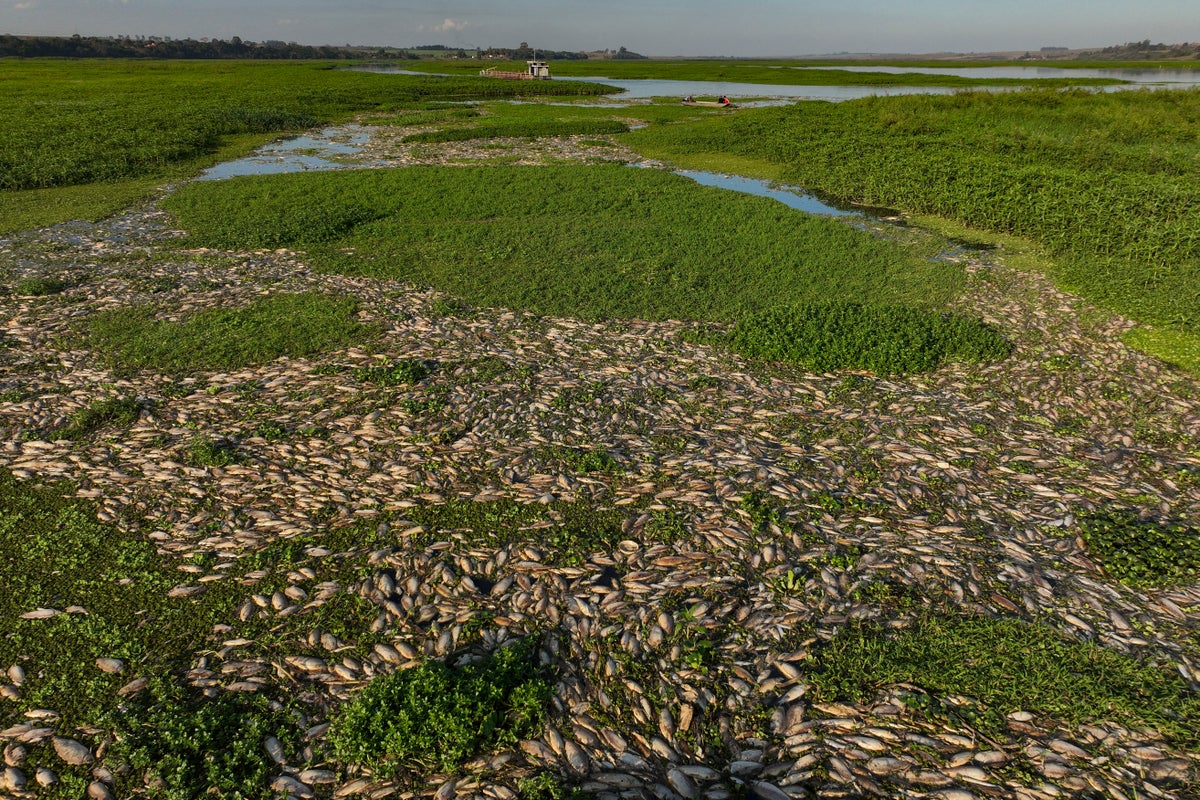
Support truly
independent journalism
Several tons of fish have died along one of the main rivers in Sao Paulo state after an alleged illegal dumping of industrial waste from a sugar and ethanol plant, environmental authorities and prosecutors said on Wednesday.
A preliminary analysis estimates that between 10 and 20 tons of fish died on the Piracicaba river, Sao Paulo's prosecutors said in a press release.
The initial investigation points to an "irregular discharge of wastewater” from Estiva’s Sao Jose plant in the community of Rio das Pedras, and it reached a stream that flows into the Piracicaba River, prosecutors said.
Estiva, the company that operates the plant, didn't respond to several AP requests for comment.
“It will take years for the environment to recover,” said Adriano Queiroz, director of licensing at Sao Paulo’s environmental agency, in a video call. Due to the number of fish killed and the variety of species affected, the impact on biodiversity is significant, he added.
The Piracicaba river crosses a protected area named Tanqua, that has been dubbed Sao Paulo’s mini-Pantanal, after the tropical wetlands famous for abundant wildlife and dazzling natural scenes.
On Wednesday a carpet of floating fish corpses covered the waterway, littering stretches of the river.
“This sad environmental disaster has moved everyone because of the seriousness and extent of the impacts,” prosecutors said, adding that the situation of the fishermen and the local community is also “very worrying.”
Prosecutors have requested a full report into conditions of the water and are waiting for further technical information before taking the next steps regarding civil and criminal liability.
Police are investigating to determine if an environmental crime was committed, Sao Paulo’s secretary for public security said in a statement.
The company risks a hefty fine.
Sao Paulo’s state environmental agency, known in Portuguese as CETESB, first received reports of the mass die-off and strong odor emanating from the river on July 7.
That same day, the agency asked the Salto Grande hydroelectric power plant to increase the amount of water released to dilute the pollution.
By July 9, data showed an increase in the amount of dissolved oxygen, favoring conditions for survival of the fish, CETESB said.
But reports emerged of another mass die-off in Tanqua, about 60 kilometers (37 miles) from the city of Piracicaba where news of dead fish first emerged.
The Piracicaba River runs through one of the oldest regions of occupation of Sao Paulo state and was used as a navigation route for small steamers and supplied water for sugar cane and coffee farms, according to the country’s national statistics agency. Its basin covers an area of 12,531 square kilometers.
A severe drought in the Amazon also killed huge quantities of fish last year. Their carcasses contaminated the water source that supplies thousands of people.
____
Follow AP’s climate coverage at: https://apnews.com/hub/climate-and-environment







